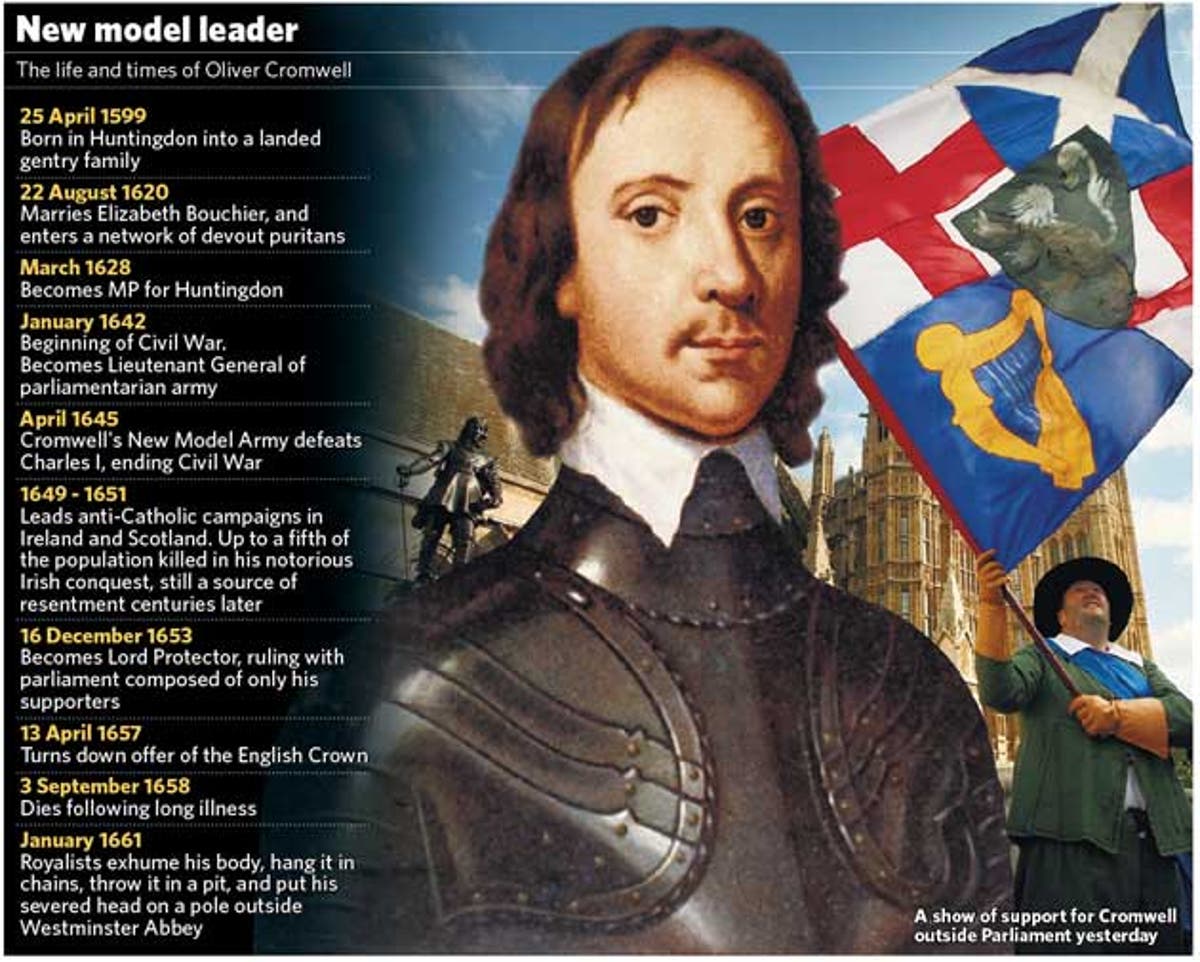Was there any chance for the English Commonwealth to take a democratic-ish form, following the Levellers'
Agreement of the People, instead of becoming a military dictatorship under Oliver Cromwell? What would happen to Scotland and Ireland?
What about the rest of Europe? Would there still be an Anglo-Dutch War?
I don't think so. Cromwell, the Grandees of the Model Army, most of the gentry and the City of London, the Rump Parliament, (or any parliament elected under management of the Army) were politically and socially conservative. To them " An Agreement of the People'' was already too radical in turning the world upside down. Their main goals were parliamentary rule, or some form that was not akin to absolute monarchy, MPs elected under property requirements, religious reform with some given out religious freedom (an idea that was already radical and a source of trouble in dealing with Quakers) and protection of property rights. The later expressed the harsh treatment and eviction of the Diggers and similar "equalitarians" by government and local authorities.
Many people undervalue that much of the Good Old Cause was republican in spirit and goals and had a large following in the Army, having advocates such as Algernon Sidney, John Milton, John Lambert, Edmund Ludlow and others.
I think if there is republic, during or after Cromwell's rule, it would be more like the one of Netherlands's First Stadtholderless period (1650–72). Perhaps in time the it would became more "democratic"
Scotland and Ireland by force or persuasion would still be part of this Commonwealth due to political, military, religious, and practical reasons. The mayor royalists uprising against Parliament and Cromwell began and ended in Scotland and Ireland so for political and military reasons they must be part of the Protectorate. The Irish wouldn't fare any better specially that the English had a very low opinion of them as lowbrow peasants to say the least
The Navigation Acts would make the situation contingent with the Netherlands and uncertain. Is in this period that English (and later British) overseas trade, with the East india Company, African gold and slave trade, Caribbean sugar and rum, trade and smuggle, with the American colonies became really important. The Navigation Acts were the means to promote and protect English trade.
